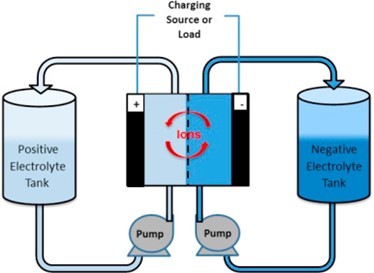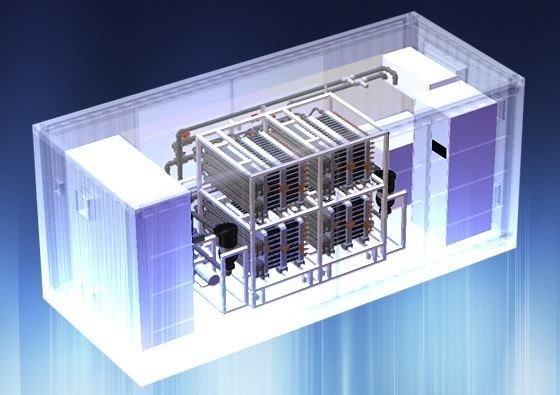Flow batteries offer many advantages over todays tried and true battery technologies. With their 20+ year life span, extended battery backup time and 10,000+ full discharge cycle life, they are looking to be an encouraging option for mission critical environments. These new batteries could give you hours instead of minutes for UPS backup, provide peak shaving capabilities, and even power storage options for your renewable energy solutions. The majority of the flow batteries in development are also promising to be more eco-friendly compared to other battery storage systems. While there are several companies still developing this technology, it is looking to be very promising.
IT is advancing quickly but most mission critical facilities infrastructure systems still rely solely on the utility company, the water company, and their diesel generator backup system. This industry has been offered many options when it comes to even just the electrical systems, but they have not been quick to adopt these newer technologies. While most rely strictly on the utility company with battery backed up UPS systems and standby generators, there are some other viable options. There are flywheels instead of batteries, solar and wind power, and fuel cells just to name a few. These have been around for some time now but still are not found to be that mainstream in the mission critical world.This raises the question of how much power do you really need and in the event of a power outage, and how much backup time do you require? Similarly, how much proof of concept for this new technology is needed before an industry will adopt it?
So, as newer technologies are being developed that will have a potential positive impact over some of our legacy systems, are you ready to explore this one and other newer products and systems? It is always a hard choice to head down a different path that is less proven or more widely adopted but which path is the right one? How long before mission critical facilities are ready to adopt these quickly emerging technologies? There are always risks but it is good to see the variety of options we have when making these decisions.


